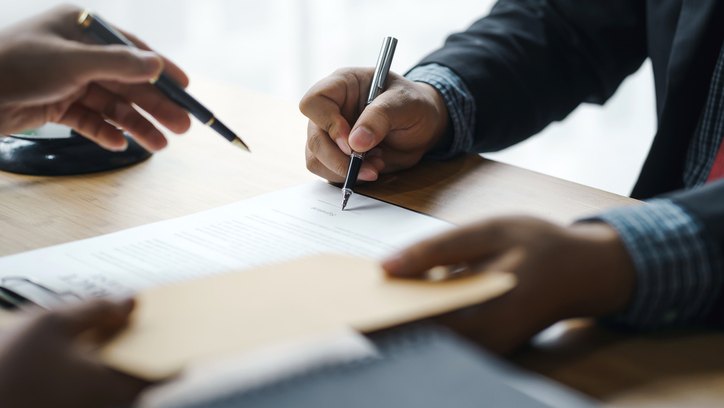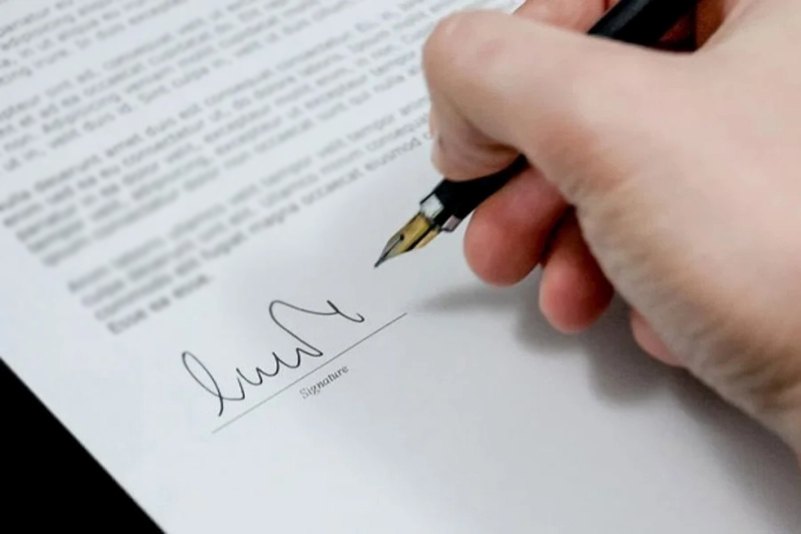
Property Registration in Spain
Alexey | · 10 min. read
Welcome to your go-to guide for property registration in Spain, spotlighting the beautiful region of Marbella! This detailed resource is crafted to walk you through the entire process of registering a property, ensuring you have all the essential information at your fingertips.
Whether you’re a first-time buyer diving into the Spanish real estate market or a seasoned investor eager to enhance your portfolio in the thriving Marbella area, this guide is here to equip you with valuable insights and practical tools. From understanding the importance of registering property to exploring the ins and outs of the Marbella real estate scene, we’ve got everything you need for a successful property purchase.
Why Property Registration in Spain is Important
Property registration in Spain is a pivotal step in safeguarding your ownership rights and avoiding potential legal problems. This process involves recording your property in the official registry, known as the Registro de la Propiedad. Here are some key reasons why this is crucial:
- Legal Protection: By registering your property, you gain legal recognition of ownership, providing a shield against claims from other parties who might stake a claim to your property.
- Transparency: Property registration ensures that all transactions are transparent, as the registry provides a detailed account of the property's history and current status.
- Financing: Many financial institutions require properties to be registered for them to be accepted as collateral for loans, making registration essential for obtaining financing.
- Dispute Resolution: Registration plays a critical role in resolving disputes related to property boundaries, property ownership conflicts, and other issues that may arise during or after a sale.

Key Highlights of the Marbella Real Estate Market
Marbella is one of the most sought-after destinations for real estate investments in Spain. Renowned for its luxurious lifestyle, stunning beaches, and vibrant nightlife, Marbella attracts a diverse array of real property buyers, from retirees seeking a tranquil retreat to investors hungry for lucrative returns. The Marbella real estate market is characterized by several distinct features:
- High-End Properties: The market is saturated with luxury villas, beachfront apartments, and exclusive gated communities, catering to those looking for high-end real estate.
- Strong Demand: Marbella enjoys consistent demand from both national and international buyers, making it a stable and attractive market for property investments.
- Investment Potential: The area offers significant opportunities for rental income and property appreciation, making it an appealing option for investors.
- Diverse Market: The market caters to a wide range of budgets, offering everything from affordable apartments to multi-million-euro mansions, ensuring something for every type of buyer.

Step-by-Step Guide to Registering Property in Spain
Step 1: Conducting Due Diligence
Before you dive into the exciting world of property ownership in Spain, it's essential to perform thorough due diligence. This step is crucial for ensuring that your investment is sound and legally secure. Here’s what to consider:
- Title Search: Start with a comprehensive title search. This process will help you verify that the property is free from any encumbrances, liens, or legal issues that might affect your property ownership. You can request this information from the local land registry (Registro de la Propiedad). It’s advisable to enlist the help of a lawyer who can assist in interpreting the title documents and identifying any potential issues.
- Planning Permissions: Check whether the property has all the necessary planning permissions. Confirm that it complies with local regulations and zoning laws to avoid future legal troubles. This is particularly important for properties that may require renovations or alterations.
- Utility Checks: Make sure the property is connected to essential utilities such as water, electricity, and gas. Verify that these services are up and running, as having access to these utilities is crucial for comfortable living and compliance with local standards.
- Legal Representation: Hiring a qualified lawyer with experience in Spanish real estate law is highly advisable. They will guide you through the legal complexities, ensuring that you understand your rights and responsibilities and helping you navigate the entire process smoothly.
Step 2: Signing the Preliminary Contract
Once your due diligence is completed and you're confident in your purchase, the next step is to sign the preliminary contract, known as the "Contrato de Arras" or deposit contract. This document outlines the key terms of the sale:
- Property Details: Ensure the contract contains a comprehensive description of the property, including its location, dimensions, and any relevant specifications. This will serve as a reference point for all parties involved.
- Price and Payment Terms: The contract should clearly state the agreed-upon sale price, the amount of the deposit, and the payment schedule. This clarity helps prevent misunderstandings down the line.
- Conditions of Sale: Include specific conditions that must be met before finalizing the sale. This could involve securing financing or completing necessary repairs. Clearly outlining these conditions protects both the buyer and seller.
- Timeline: Establish an expected date for signing the final contract and transferring ownership. Having a timeline keeps everyone on track and ensures that both parties know what to expect.
Step 3: Obtaining a NIE (Foreigner’s Identification Number)
If you’re a foreign buyer, securing a NIE (Número de Identificación de Extranjero) is essential. This unique identification number is required for all legal and financial transactions in Spain. Here’s how to obtain your NIE:
- Visit a Local Police Station or Consulate: You can apply for your NIE by visiting a local police station in Spain or a Spanish consulate in your home country.
- Prepare Required Documents: You’ll typically need to provide the following:
- Application Form: Complete the EX-15 application form, which can be downloaded online or obtained at the application site.
- Passport: Bring your original passport along with a photocopy for identity verification.
- Reason for NIE: Provide a brief explanation of why you need the NIE, such as for purchasing property. Clear documentation of your intentions will facilitate the process.
Step 4: Finalizing the Property Purchase
Once you have your NIE, you can proceed to finalize the property purchase:
- Signing the Public Deed (Escritura Pública): This is a critical step where both the buyer and seller or their legal representatives, must be physically present before a notary. The notary’s role is to ensure that all necessary documents are in order. During this process:
- Payment: The buyer pays the remaining balance of the purchase price as specified in the preliminary contract.
- Documentation Verification: The notary will thoroughly check all related documents, including the preliminary contract, NIE, and proof of payment, to ensure everything is accurate and compliant.
Step 5: Paying Taxes and Fees
Several taxes and fees are associated with property purchases in Spain. Understanding these costs will help you budget effectively:
- Transfer Tax (Impuesto de Transmisiones Patrimoniales - ITP): This tax generally ranges from 6% to 10% of the purchase price, depending on the region and the specific type of property.
- Notary Fees: Fees for the notary’s services typically range from 0.5% to 1% of the property's price. These fees cover the cost of legalizing the transaction.
- Registry Fees: When registering the property, expect to pay fees that usually amount to around 0.5% to 1% of the property's purchase price.
- Legal Fees: Hiring a lawyer will incur legal representation fees, which often range from 1% to 2% of the property price, reflecting professional assistance in navigating the legal processes involved.
To learn more about the property tax system, see this comprehensive guide about the primary property taxes in Spain.
Step 6: Registering the Property
After signing the public deed and settling the necessary taxes and fees, the final step is to register the property with the "Registro de la Propiedad." This crucial step provides official recognition and legal protection of your ownership rights. To register the property, you will need:
- Public Deed: A copy of the signed public deed (escritura pública), which serves as the official document proving the sale.
- Proof of Tax Payment: Keep receipts showing that you have paid the transfer tax and any other applicable fees to verify that all financial obligations have been met.
- Identification: Valid identification documents, such as your NIE and passport, are required to complete the process of registering property.

Common Challenges and How to Overcome Them
Language Barrier
One of the common challenges for foreign real property buyers in Spain is the language barrier. Many of the documents and legal processes are conducted in Spanish, which can be difficult to understand. To overcome this challenge, it is advisable to hire a lawyer who is bilingual or multilingual, allowing them to translate and explain all documents and processes in your native language. Additionally, utilizing professional translation services can ensure that all important documents are accurately translated, helping you fully understand the terms and conditions.
Navigating Local Regulations
Local regulations and property laws can vary significantly across different regions of Spain, making it essential to navigate these complexities carefully. To manage this effectively, conducting thorough research on the regional regulations and property laws specific to the area where you are purchasing property is crucial to avoid legal issues. Consulting with local real estate experts and lawyers who are well-versed in the local regulations and laws will provide you with accurate and timely advice, helping you make informed decisions.
Ensuring Clear Title
Ensuring that the property has a clear title is crucial in avoiding future legal disputes. To ensure clarity and legality, it is important to conduct a detailed title search to confirm the property’s ownership history and ensure there are no encumbrances or legal issues attached to it. Obtaining a property survey is also essential to confirm the exact boundaries of the property and check for any potential issues that could be problematic in the future.
Final Thoughts
Registering a property in Spain involves multiple steps and demands careful attention to detail. To help you navigate this process with greater ease and confidence, here are some useful resources for property registration and real estate investment in Spain:
- Registro de la Propiedad or Property Registry (www.registradores.org): The official body responsible for registering property ownership and rights.
- Agencia Tributaria or Tax Agency (sede.agenciatributaria.gob.es): The government agency where you can find information on taxes related to property transactions.
- Policía Nacional or NIE Information (sede.policia.gob.es): The national police service that provides guidance on obtaining your NIE (Foreigner’s Identification Number).
- Spain Info or Official Tourism Website (spain.info): A valuable resource for information about living in Spain and the various regions, including real estate insights.
By following the guidelines provided in this comprehensive guide and leveraging these resources, you can ensure your property purchase is smooth and legally sound. This will allow you to fully embrace and enjoy the Spanish lifestyle in one of its most lucrative destinations.